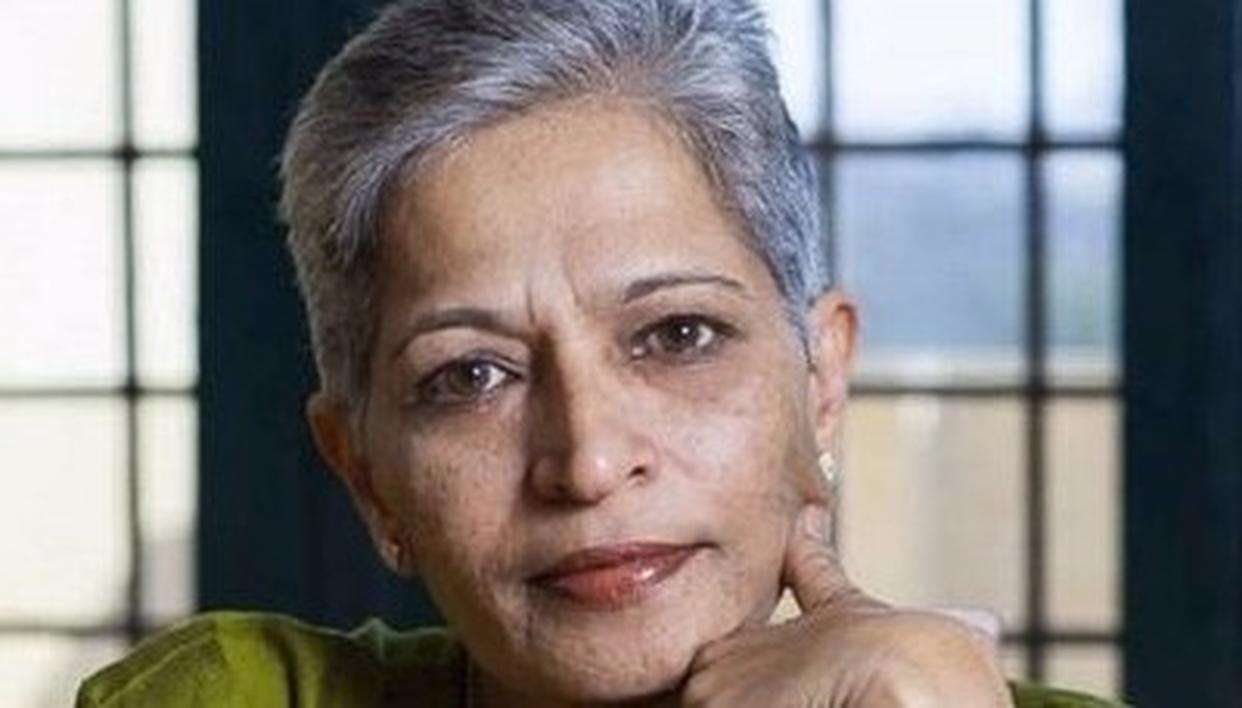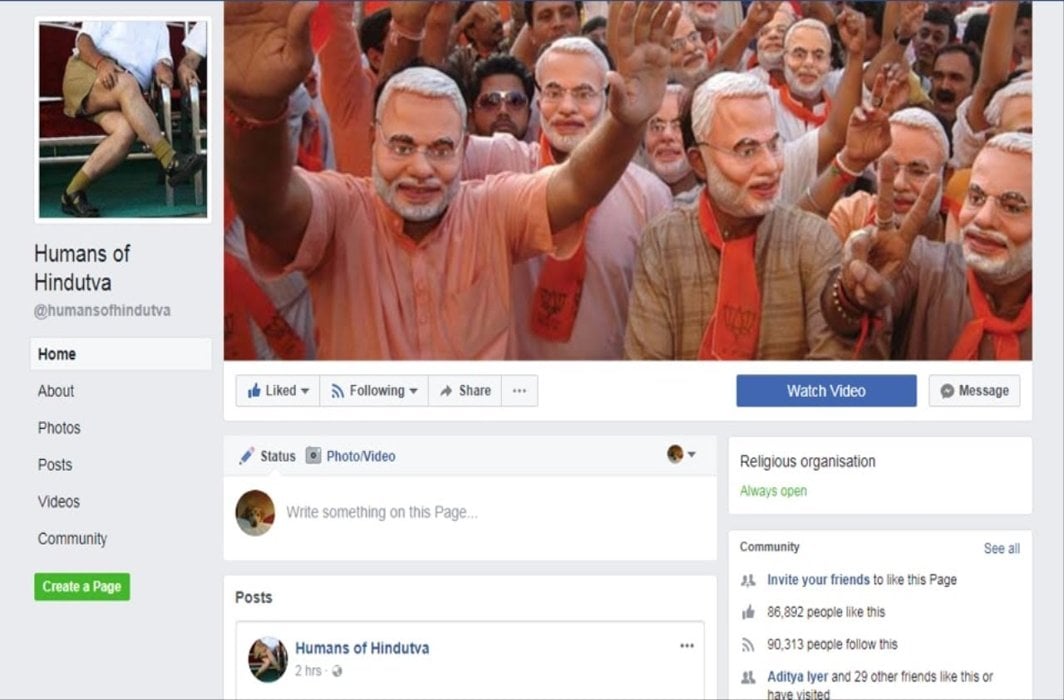Leader of Hindu fundamentalist group Sanatan Sanstha, Jayant Athavale, is likely to face questioning by the Maharashtra Anti-Terrorism Squad (ATS) over arms hauls from different parts of the state between August 9 and 11, said media reports quoting sources.
Sanatan Sanstha has denied the reports.
Crude bombs and weapons were seized from different locations following the arrest of three members of the group, the police have said.
The men, who were regular visitors at the Sanatan Sanstha headquarters in Goa, were picked up from Nallasopara in Palghar district last week and have been accused of planning blasts in the state, the police said.
The police say the members of the Goa-based outfit – which has a pan-India presence – are connected with the murders of rationalist Narendra Dabholkar and journalist Gauri Lankesh.
A few days ago, the CBI arrested 28-year-old Sachin Andure and claimed that Andure had hatched the plan to murder Dabholkar along with Sanatan Sanstha member, one Virendra Tawde.
The CBI also arrested another suspect Sachin Kalaskar in connection with the case. Earlier, the Maharashtra ATS had arrested Vaibhav Raut, a Sanatan Sanstha sympathiser and recovered crude bombs from Raut’s residence.
The raid at the pistol manufacturing unit at Nalasopara in Palghar district took place after questioning Sachin Andure, the man who allegedly shot Narendra Dabholkar along with one Sharad Kalaskar.
On August 10, Sharad Kalaskar was arrested along with Vaibhav Raut and Sudhanwa Gondhalekar, from Palghar and Pune districts in connection with the arms haul. The police claim he has admitted to the murder of Narendra Dabholkar.
The investigators have questioned 16 people, located across Pune, Satara, Nallasopara, and Solapur, for links with the three arrested men said media reports. Yesterday, (Tuesday, August 21) a former Shiv Sena corporator, Shrikant Pangarkar, was also arrested by the Maharashtra Anti-Terrorism Squad in connection with the arms haul
Jayant Athavale, 76, had worked as a psychotherapist in UK for 7 years and then in Mumbai, claims the website of Sanatan Sanstha.
The reports of Athavale’s likely questioning come just a day after Congress demanded that Athawale be arrested.
“The police should arrest Athawale if it is interested in zeroing in on the masterminds behind the murder of Dabholkar and other rationalists, Comrade Govindrao Pansare and Professor MM Kalburgi, and journalist Gauri Lankesh,” Congress’ Radhakrishna Vikhe-Patil was quoted as saying by Indian Express.
It may be noted that Dabholkar was found dead in a pool of blood in Pune on the morning of August 20, 2013. Govind Pansare was shot at in Kolhapur on February 16, 2015. He later died of injuries on February 20. Gauri Lankesh was killed outside her residence in Bengaluru on September 5, 2017.
Meanwhile, media reports said Sanatan Sanstha, the radical Hindu outfit allegedly linked to the murders of rationalist thinkers and activists, was all set to be banned by the UPA government in 2013. The Congress-led coalition, however, developed cold feet, fearing the party would be branded anti-Hindu with Lok Sabha elections around the corner, News18 reported.
Congress leader and former Maharashtra chief minister Prithviraj Chavan told News 18 that he had recommended a ban on the Sanatan Sanstha in 2011. “When I was the CM in April 2011, Maharashtra Police brought before me a lot of documentary evidence and a big dossier on this organisation. After studying it, we came to the conclusion that we should ban this organisation and sent a formal proposal to the Union Home Ministry,” Chavan said.
He said the deliberation on banning Sanatan Sanstha went on for two years and in 2013 documentary evidence was submitted to the Centre. “After a lot of correspondence, we sent a 1,000-page dossier in 2013 and it was being investigated by the Union Home Ministry,” the former CM said.
A Home Ministry official confirmed this, saying that a plan to ban the outfit was afoot in 2013. “A file was prepared, but the decision was not taken for political reasons,” the unnamed official told News 18.
According to sources, the Congress party’s internal deliberations showed it was wary of being branded ‘anti-Hindu’ ahead of the 2014 General Elections, the News 18 report said.
Sanatan Sanstha spokesperson Shambhu Gaware has called the Congress demand to ban the organisation as “politically motivated”, said News 18. “In the Madgaon case too, the Sanatan Sanstha was blamed, but all accessed were acquitted,” he said, referring to the 2009 blast in the Goa town.
Another Sanstha spokesperson Chetan Rajhans accused Chavan of “spreading rumours”. “Prithviraj Chavan has been spreading rumours that people with Right-wing ideology are involved in the Dabholkar murder case since before investigation began. The probe, therefore, has taken a wrong turn. Only time will tell whether there will be a ban on Sanstha or not, but Vikhe Patil (Leader of Opposition in Maharashtra) is going behind bars,” Rajhans said.



















